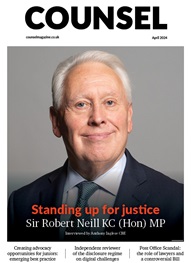*/
Immigration – Leave to remain. The claimant Pakistani national arrived in the United Kingdom as a spouse of a person settled and present in the UK. The defendant Home Secretary made two consecutive decisions permitting him to remain on a limited basis. The claimant overstayed his permission by two years and eight months. He made a further application for leave to remain, which the Secretary of State refused. The claimant applied for judicial review of that decision. Dismissing the claim, the Administrative Court held that it was settled law that considerations under art 8 of the European Convention on Human Rights were embedded in the Immigration Rules such that if the Secretary of State applied those Rules then, ordinarily, art 8 considerations would have been fully catered for. In the instant case, no good arguable grounds had been advanced that there had been factors particular to the claimant that had not been capable of being assessed from within the existing framework of Rules and which therefore needed to be assessed outside of the Rules. Further, the Secretary of State had taken into account all of the factors and matters which had been relevant to the claimant. Finally, there had been no error of law in the approach adopted by the Secretary of State to the question of whether there had been insurmountable obstacles to relocation.
Immigration – Leave to remain. The claimant Pakistani national arrived in the United Kingdom as a spouse of a person settled and present in the UK. The defendant Home Secretary made two consecutive decisions permitting him to remain on a limited basis. The claimant overstayed his permission by two years and eight months. He made a further application for leave to remain, which the Secretary of State refused. The claimant applied for judicial review of that decision. Dismissing the claim, the Administrative Court held that it was settled law that considerations under art 8 of the European Convention on Human Rights were embedded in the Immigration Rules such that if the Secretary of State applied those Rules then, ordinarily, art 8 considerations would have been fully catered for. In the instant case, no good arguable grounds had been advanced that there had been factors particular to the claimant that had not been capable of being assessed from within the existing framework of Rules and which therefore needed to be assessed outside of the Rules. Further, the Secretary of State had taken into account all of the factors and matters which had been relevant to the claimant. Finally, there had been no error of law in the approach adopted by the Secretary of State to the question of whether there had been insurmountable obstacles to relocation.


Sam Townend KC explains the Bar Council’s efforts towards ensuring a bright future for the profession
Giovanni D’Avola explores the issue of over-citation of unreported cases and the ‘added value’ elements of a law report
Louise Crush explores the key points and opportunities for tax efficiency
Westgate Wealth Management Ltd is a Partner Practice of FTSE 100 company St. James’s Place – one of the top UK Wealth Management firms. We offer a holistic service of distinct quality, integrity, and excellence with the aim to build a professional and valuable relationship with our clients, helping to provide them with security now, prosperity in the future and the highest standard of service in all of our dealings.
Is now the time to review your financial position, having reached a career milestone? asks Louise Crush
If you were to host a dinner party with 10 guests, and you asked them to explain what financial planning is and how it differs to financial advice, you’d receive 10 different answers. The variety of answers highlights the ongoing need to clarify and promote the value of financial planning.
On the 50th anniversary of the pub bombings, even now it is still unresolved. Chris Mullin, the journalist and former MP who led the campaign leading to the release of the Birmingham Six, looks back at events
Most of us like to think we would risk our career in order to meet our ethical obligations, so why have so many lawyers failed to hold the line? asks Flora Page
If your current practice environment is bringing you down, seek a new one. However daunting the change, it will be worth it, says Anon Barrister
One year on and the Court of Appeal fails to quash convictions after receiving evidence of racism in the jury room, and there are still no revisions to the Equal Treatment Bench Book , says Keir Monteith KC
A cultural life and times